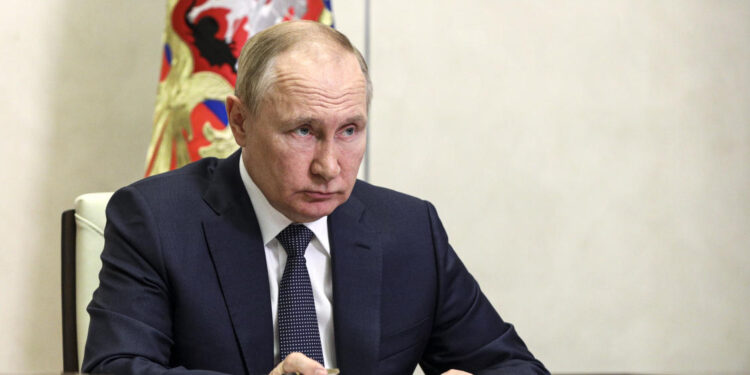Putin heads to Tehran for talks with Iran, Turkey leaders
Only on his second overseas trip since Russian tanks entered his neighbor in February is Putin expected to hold talks with Iranian President Ebrahim Raisi and Turkish President Recep Tayyip Erdogan on urgent issues facing the region, including the conflict in Syria and a sustained proposal to resume Ukrainian grain exports to alleviate the global food crisis.
As the West piles up sanctions against Russia and the costly campaign drags on, Putin is looking to strengthen ties with Tehran, another target of US severe sanctions and a potential military and trade partner.
In recent weeks, Russian officials have visited an airport in central Iran at least twice to examine Tehran’s weaponized drones for possible use in Ukraine, the White House said.
But perhaps most crucially, Tehran offers Putin an opportunity for a high-risk meeting with Erdogan, who has sought to help negotiations on a peaceful solution to the Russia-Ukraine conflict, as well as aiding negotiations to unblock grain Ukrainian across the Black Sea.
Turkey, a member of NATO, faced Russia in bloody conflicts in Azerbaijan, Libya and Syria. But Turkey has not imposed sanctions on the Kremlin, making it an extremely necessary partner for Moscow.
Struggling with runaway inflation and a rapidly depreciating currency, Turkey is also relying on the Russian market.
The meeting also has symbolic significance for Putin’s internal audience, showing Russia’s international weight even as it becomes increasingly isolated and dives deeper into confrontation with the West.
Backed on the corner by the West and its regional rivals, the Iranian government is ramping up uranium enrichment, cracking down on dissent and grabbing the headlines with optimistic and uncompromising positions aimed at preventing Iran’s currency, the rial, collapses.
With no easing of sanctions in sight, Iran’s tactical partnership with Russia has become a survival partnership, even as Moscow appears to be undercutting Tehran in the black market oil trade.
“Iran is (the) center of dynamic diplomacy,” Iranian Foreign Minister Hossein Amirabdollahian tweeted, adding that the meetings “will develop economic cooperation, focus on regional security through a political solution … and they will guarantee food security”.
Fadahossein Maleki, a member of the influential commission on national security and foreign policy in the Iranian parliament, on Monday described Russia as Iran’s “most strategic partner”. His comments belied decades of animosity stemming from the Russian occupation of Iran during World War II and his refusal to leave afterward.
Source: Arab News

















